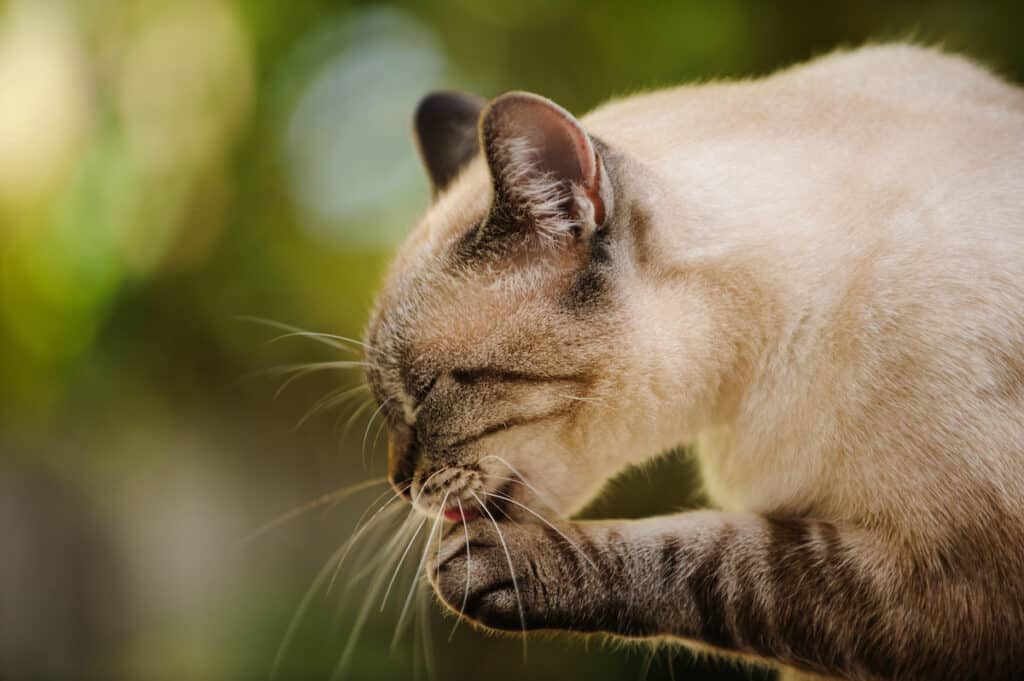Many pet owners think that cats are cleaner than dogs. This is not wrong because a lot of the time, cats groom themselves. But some cats groom themselves too much.
Clean from the Start
After a mother cat gives birth, her first job is to remove the amniotic sac and then lick the kitten with her sandpapery tongue. This licking helps stimulate the kitten’s breathing. Later, when the kitten starts nursing, she will again lick it–this time around its hind end–to help it urinate and defecate outside of its own body.
Kittens start imitating their mothers by self-grooming at just a few weeks old; if they’re part of a litter, they’ll even groom each other as well from time to time. Similarly, cats learn to knead when they’re kittens to help their mother produce milk. This behavior often carries into adulthood.
But why do cats bother grooming in the first place? Some key reasons are that it helps them cool off in hot weather, gets rid of fleas and other parasites, and makes them look good so they can attract mates.
To Cleanse Injuries
When cats lick their wounds, they might spread bacteria and dirt which can cause the wound to become infected and make it heal slowly.
To Hide Scent From Predators
Dogs aren’t the only ones with a powerful sense of smell–cats have it too. In fact, cats’ sense of smell is fourteen times more potent than ours. Most predators, including our feline friends, use scent to track down prey. A mother cat in the wild will try to keep her young kittens safe by hiding any evidence that they’ve been fed. She does this by washing herself and them thoroughly after nursing.
For the same reason, cats bury uneaten prey in the wild rather than leave it out in plain sight. If you have a pet cat, you may notice that they scratch at the ground around their food dish after eating; this is because they’re exhibiting an instinctual behavior picked up from their wild ancestors.
To Groom and Lubricate the Coat and Skin
When cats groom themselves, the tiny spines on their rough tongues help spread oil from the sebaceous glands (found at the base of each hair) throughout their fur. This also gets rid of dirt and parasites such as fleas. Plus, since cats do not have sweat glands, licking themselves cools them down on hot days.
For Pleasure
Cats like to clean themselves and other cats. They seem to like the good feeling they get when they do this with other cats because it makes them feel social.
When Cat Grooming Becomes Obsessive
If cats groom themselves too much, they could get bald spots and sores. This is often caused by stress and is like when humans bite their nails down to the skin. In general, cats really do not like changes of any kind. A new baby, someone dying in the family, or even moving furniture around can trigger this obsessive grooming behavior. There might also be physical causes like flea bites, ringworm, or itchiness from allergies; so medical issues must be ruled out before diagnosing a stress response as being the cause for over-grooming.
If a kitten is taken away from their mother before they are ready, they will not have the normal weaning period. Often times, these kittens will self-groom by licking or sucking as a coping mechanism. However, this behavior usually lessens and eventually disappears over time when the kitten is kept in a safe and predictable environment.














